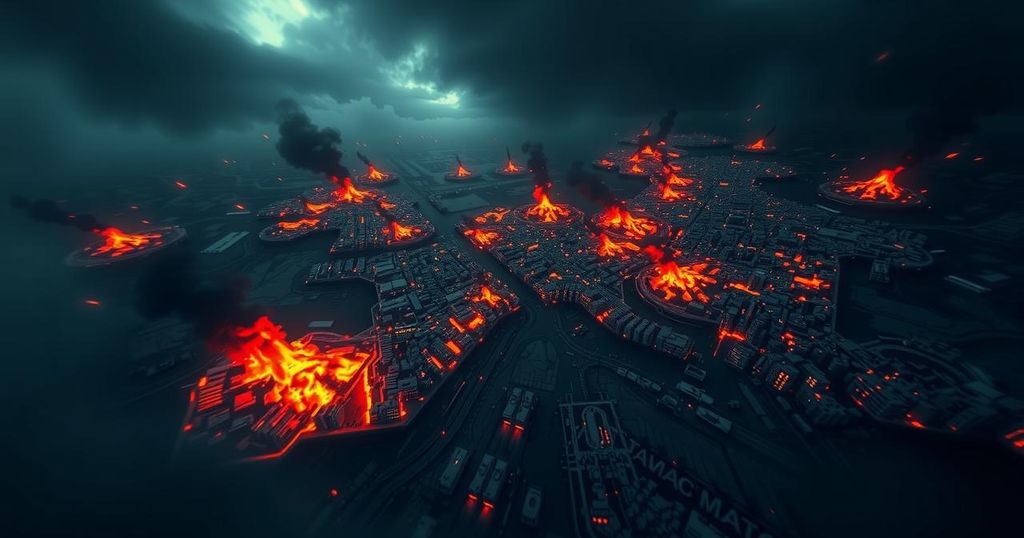Iran supports the Lebanese resistance amid potential ceasefire talks; Araghchi emphasizes assistance to Lebanon, while Iran secretly arms Hezbollah. Israel intensifies military operations in northern Lebanon. Options for Iran include advancing nuclear capabilities or escalating regional proxy conflicts. The next weeks could dictate Iran’s path with the new US administration approaching.
Iran’s foreign policy remains steadfast as it supports the Lebanese resistance amid potential ceasefire negotiations between Israel and Hezbollah. Iranian Foreign Minister Abbas Araghchi has reinforced Iran’s backing of the Lebanese people and government during discussions with Iranian officials. This week, Iran dispatched a medical team to Lebanon as a demonstration of solidarity, while clandestinely supplying arms to Hezbollah. Sources indicate that Hezbollah, while ally to Hamas, may not have been privy to the timing of the recent conflict initiated by Hamas’ attack on October 7.
As the ceasefire process unfolds, it represents a crucial turning point for both Iran and the broader Middle Eastern landscape. Iranian officials have publicly acknowledged Hezbollah’s resilience against Israel’s military operations, which have intensified since mid-September when Israel aimed to reclaim northern territories from Hezbollah control. Recent imagery from the Israel Defense Forces highlights their assertive stance in the region, further pressuring both local and Iranian entities.
Moreover, Iran is now confronted with critical decisions regarding its military strategy and nuclear ambitions. With the possibility of an extended ceasefire, Iran may contemplate a dual approach: prioritizing advancements in nuclear capability while simultaneously leveraging its regional proxies across Iraq and Syria to potentially escalate hostilities against Israel. The implications of such a strategy will be significant, especially as the geopolitical landscape evolves with the imminent ascension of President-elect Donald Trump, marking a pivotal period of uncertainty for Iran’s regional maneuvers.
The ongoing conflict in the region culminates in a heightened significance surrounding any potential ceasefire between Israel and Hezbollah. Iran’s involvement as a main supporter of Hezbollah and the broader resistance movement in Lebanon underscores its strategic interests. The ceasefire discussions reflect both a culmination of tension and an opportunity for Iran to recalibrate its military and diplomatic strategies in response to shifting power dynamics against the backdrop of evolving US policy.
In summary, Iran’s actions amidst the potential ceasefire illustrate its commitment to supporting Hezbollah while simultaneously weighing its strategic options for nuclear advancement and regional influence. The next several weeks will be crucial for Iran as it navigates this delicate situation, attempting to maintain its position as a key player in Middle Eastern geopolitics while responding to Israel’s military initiatives.
Original Source: www.jpost.com






